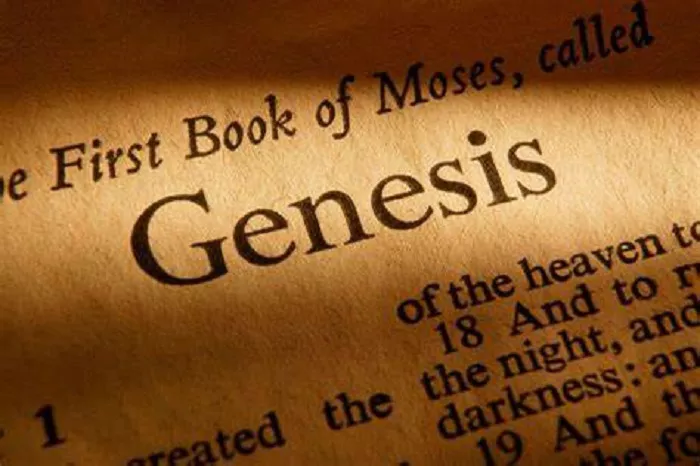The book of Genesis is the first book of the Bible. It holds a special place in both Jewish and Christian traditions. But why was Genesis written? To understand this, we need to explore its purpose, themes, and messages. Genesis sets the foundation for the rest of the Bible. It explains the beginnings of the world, humanity, and God‘s relationship with His creation.
To Explain the Origins
Genesis explains the origins of the universe. It starts with the creation story. God creates the world in six days and rests on the seventh. This account shows that God is the creator of everything. It provides an understanding of the world’s beginnings. It also establishes that the universe is not a result of random chance but a deliberate act of creation.
To Establish God’s Sovereignty
Genesis establishes God’s sovereignty. From the creation story, we learn that God has ultimate power and authority. He speaks, and things come into existence. This teaches us that God is in control of everything. It reassures us that the world is under His command. His will and purpose guide all things.
To Introduce Key Themes
Genesis introduces key themes that are developed throughout the Bible. These themes include creation, sin, judgment, and redemption. By understanding Genesis, we can better understand these themes in later books. For example, the theme of sin begins with Adam and Eve’s disobedience. This theme continues throughout the Bible, showing humanity’s need for salvation.
See Also: What Does the Bible Say About the World Changing?
To Teach About Human Nature
Genesis teaches about human nature. It shows that humans are created in the image of God. This means we have value and dignity. But it also shows that humans are prone to sin. The story of the fall demonstrates this. Adam and Eve disobey God, bringing sin into the world. This explains why there is suffering and evil in the world. It shows that humans need God’s guidance and redemption.
To Reveal God’s Plan
Genesis reveals God’s plan for humanity. It starts with creation and the fall. But it also includes God’s promises and covenants. These show that God has a plan to redeem humanity. The covenant with Abraham is a key example. God promises Abraham land, descendants, and blessing. This covenant is part of God’s plan to bring salvation to the world. It sets the stage for the coming of Jesus Christ.
To Establish a Historical Context
Genesis provides a historical context for the rest of the Bible. It introduces key figures and events. These include Adam and Eve, Noah and the flood, Abraham, Isaac, Jacob, and Joseph. These stories form the background for the history of Israel. They show how God worked through these individuals and their descendants. This context helps us understand the later books of the Bible.
To Teach About Faith and Obedience
Genesis teaches about faith and obedience. The stories of the patriarchs demonstrate this. Abraham is a key example. God calls him to leave his home and go to a new land. Abraham obeys, showing his faith in God. This teaches us the importance of trusting and obeying God. It shows that faith is more than just belief; it involves action.
To Highlight God’s Faithfulness
Genesis highlights God’s faithfulness. Despite human sin and failure, God remains faithful. He keeps His promises and works to redeem humanity. This is seen in the covenants with Noah and Abraham. Even when humans fail, God is faithful to His word. This gives us hope and assurance in God’s character.
To Explain the Beginnings of Nations
Genesis explains the beginnings of nations. It shows how humanity spread across the earth. The story of the Tower of Babel explains the diversity of languages. The genealogies in Genesis trace the origins of different peoples. This helps us understand the relationships between nations. It also shows God’s involvement in human history.
To Provide Moral Lessons
Genesis provides moral lessons. The stories of the patriarchs and other figures teach us about right and wrong. They show the consequences of sin and the rewards of obedience. For example, the story of Joseph teaches about forgiveness and perseverance. Despite being betrayed by his brothers, Joseph forgives them and rises to a position of power. These stories teach us valuable lessons for our lives.
To Demonstrate God’s Love
Genesis demonstrates God’s love. Despite human sin, God does not abandon His creation. He provides for Adam and Eve after the fall. He saves Noah and his family from the flood. He blesses Abraham and his descendants. These actions show God’s love and care for humanity. They remind us that God is always working for our good.
To Prepare for the Coming of Christ
Genesis prepares for the coming of Christ. The promises and covenants point to Jesus. The promise to Abraham includes a blessing for all nations. This is fulfilled in Jesus, who brings salvation to the world. The story of Joseph, who saves his family, is a foreshadowing of Jesus, who saves humanity. By understanding Genesis, we can see how it sets the stage for the gospel message.
To Encourage Hope
Genesis encourages hope. It shows that despite sin and suffering, God has a plan. His promises and actions give hope for the future. The story of Abraham and his descendants shows that God is working towards a greater purpose. This hope is fulfilled in Jesus Christ. By studying Genesis, we can find hope and assurance in God’s plan for us.
Conclusion
Genesis was written for many reasons. It explains the origins of the world and humanity. It establishes God’s sovereignty and introduces key themes. It teaches about human nature, faith, and obedience. It highlights God’s faithfulness and reveals His plan for redemption. It provides a historical context and moral lessons. It demonstrates God’s love and prepares for the coming of Christ. Finally, it encourages hope. By understanding Genesis, we can better understand the Bible and God’s plan for us.

